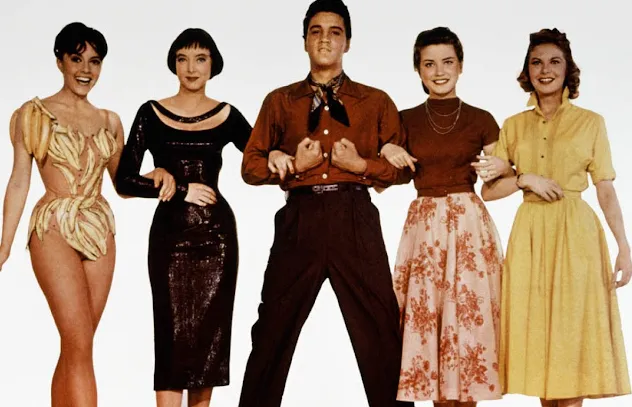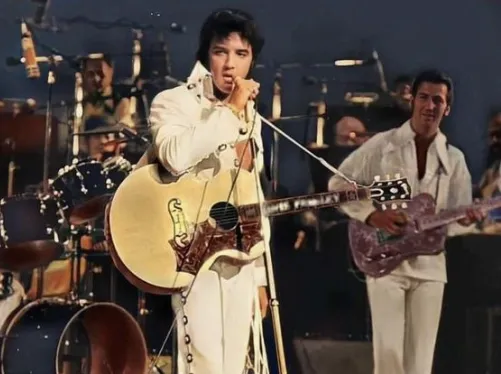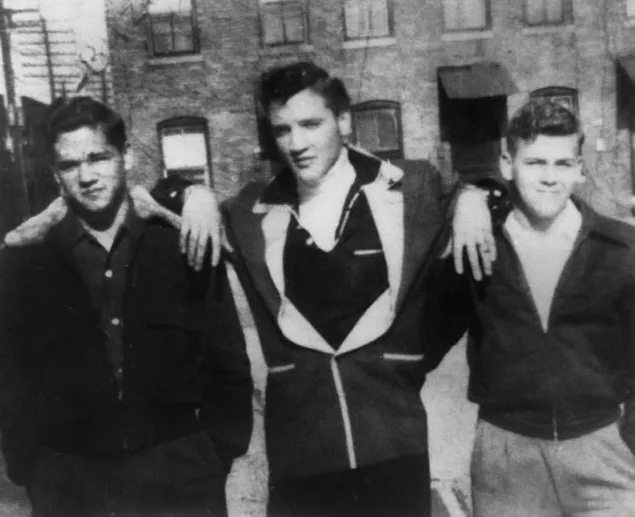About The Song
(Watch the video below)
Elvis Presley, the iconic King of Rock and Roll, was known for his electrifying performances and chart-topping hits. Among his many memorable songs, "In the Ghetto" stands out as a powerful narrative that addresses social issues and highlights the plight of the less fortunate. Released in 1969, the song marked a departure from Presley's usual repertoire, showcasing his versatility as an artist and his willingness to tackle meaningful themes through his music.
Written by Mac Davis, "In the Ghetto" tells the story of a young boy named Little Joey, who grows up in poverty and hardship in the inner city. The lyrics paint a vivid picture of his struggles, from his humble beginnings to his eventual tragic fate. Presley's heartfelt delivery and emotive vocals bring the character to life, evoking a sense of empathy and compassion for his plight.
From the haunting opening chords to the stirring chorus, "In the Ghetto" captivates listeners with its poignant melody and thought-provoking lyrics. Presley's voice carries a sense of urgency and conviction as he sings about the cycle of poverty and violence that plagues the inner city. With each verse, he shines a spotlight on the harsh realities faced by marginalized communities, shedding light on issues that often go unnoticed or ignored.

Thematically, "In the Ghetto" serves as a powerful commentary on the social and economic disparities that exist in society. Through the character of Little Joey, Presley highlights the cycle of poverty and violence that traps so many individuals in disadvantaged communities. The song challenges listeners to confront their own prejudices and assumptions, urging them to recognize the humanity and dignity of those less fortunate.
Moreover, "In the Ghetto" resonated with audiences upon its release, striking a chord with listeners who could relate to its themes of struggle and resilience. In an era marked by social upheaval and civil unrest, the song served as a rallying cry for social justice and equality. Presley's decision to record "In the Ghetto" demonstrated his commitment to using his platform for positive change and his willingness to address controversial issues through his music.
Furthermore, "In the Ghetto" showcased Presley's evolution as an artist and his willingness to push boundaries and explore new musical territory. While he was primarily known for his rock and roll hits, the song demonstrated his versatility and ability to tackle serious subject matter with sincerity and depth. His impassioned performance earned critical acclaim and cemented his reputation as a multifaceted musician with a social conscience.

"In the Ghetto" also holds a special place in the hearts of Elvis fans around the world. For many, the song represents a departure from his usual fare of love ballads and upbeat rockers, offering a glimpse into his artistic range and depth. Its timeless message of compassion and empathy continues to resonate with listeners of all ages, inspiring them to confront injustice and work towards a more equitable society.
In addition to its social commentary, "In the Ghetto" is also notable for its musical composition and arrangement. The song features a stirring orchestral accompaniment that adds to its emotional impact, building to a powerful crescendo in the final chorus. Presley's vocals soar over the lush instrumentation, conveying a sense of urgency and intensity that captures the gravity of the song's subject matter.
"In the Ghetto" remains a poignant reminder of the power of music to provoke thought, evoke emotion, and inspire change. Presley's timeless rendition of the song continues to resonate with audiences around the world, serving as a testament to his enduring legacy as a musician and cultural icon. As society continues to grapple with issues of poverty, inequality, and social justice, "In the Ghetto" remains as relevant and timely as ever, reminding us of the importance of empathy, compassion, and understanding in building a more just and equitable world.


